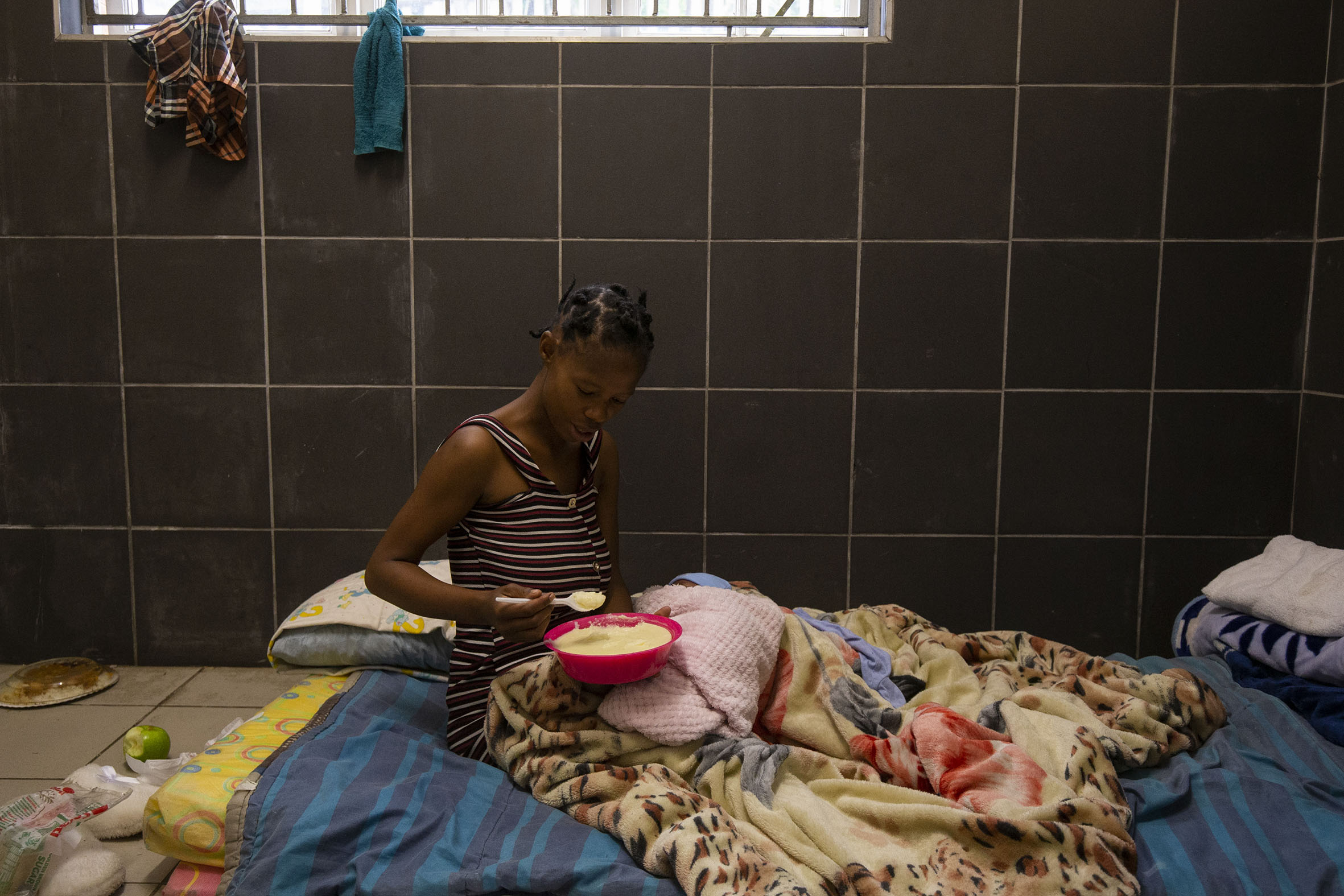Flood and fire victims in Durban are fast losing hope
The traumatised residents of Siyathuthuka shack settlement have now faced several calamitous events that have destroyed their homes, their dreams and any prospects of a dignified life.
Author:
3 June 2022

Residents of Siyathuthuka, a shack settlement in the Sea Cow Lake area in Durban, were still picking up the pieces from the wreckage left by the April floods that hit KwaZulu-Natal when a fire broke out on 3 May and claimed the lives of Sisipho Manqina, 8, and her father Sabelo Mthathwa. This was before more floods hit the settlement on 21 May, further compounding their problems.
“The fire happened at around 1.30am. The area had been without electricity for a few days owing to faulty self-connections. We suspect it might have started from a candle,” said resident and activist Khanyisile Mqushwana, 42.
“When the fire broke out, Sabelo evacuated the family from the house. When he went outside, he soon realised that one of his twin daughters was stuck inside the bedroom. He went inside trying to rescue her but could not save her. The flames had already engulfed the house. He was badly burnt and a few days later he succumbed to his injuries and died.”
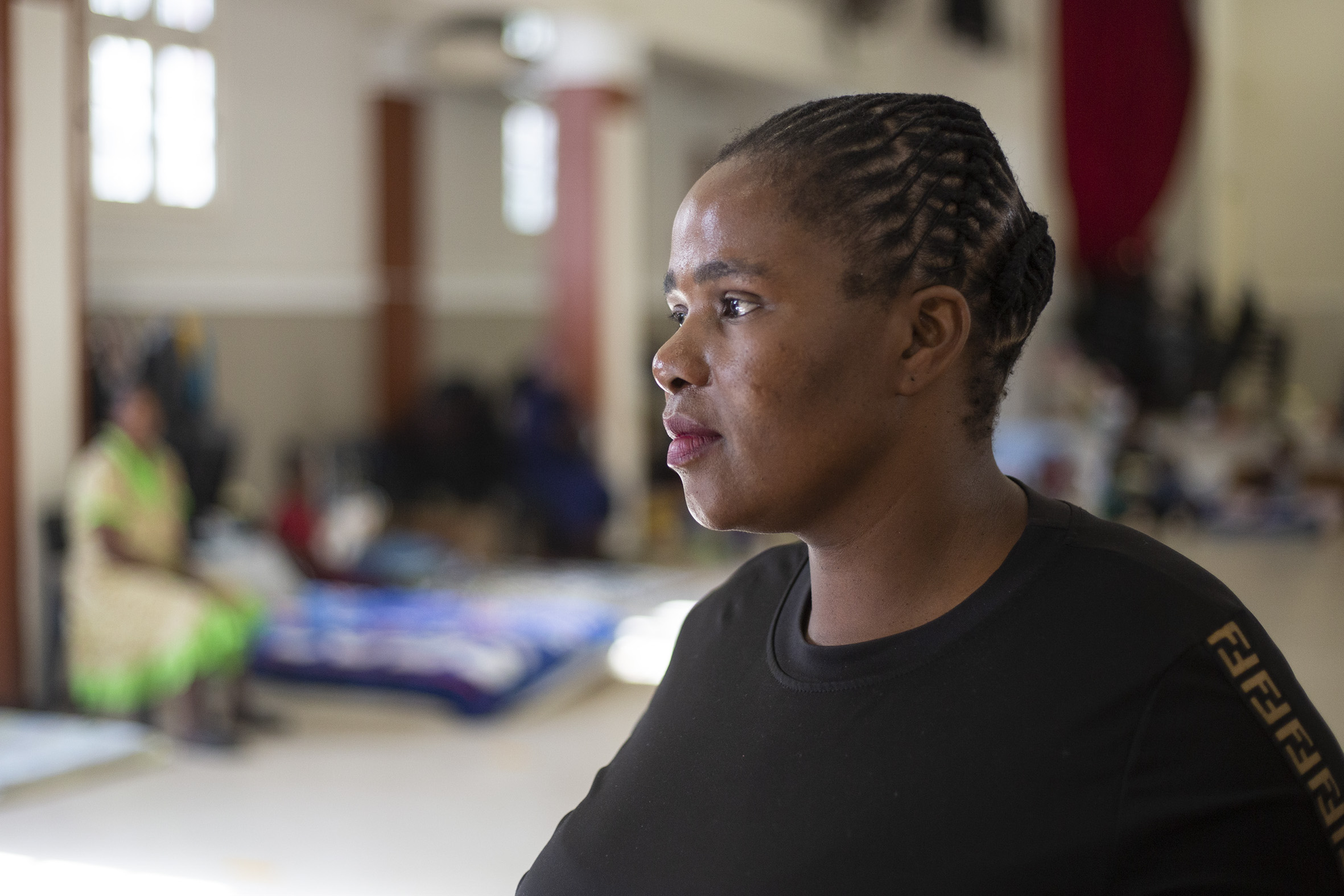

Siyathuthuka, which means “we are progressing”, is home to about 700 residents. A stench of uncollected rubbish hangs in the air and there is no formal access to water or electricity. The floods and landslides in April are reported to have destroyed 87 shacks in the settlement, leaving at least 114 residents homeless. The fire, which destroyed 48 shacks and affected 116 people, has added to the misery the residents have had to endure.
A few days after the fire, residents started rebuilding their homes when building material provided by the eThekwini municipality arrived. Those who were displaced by the April floods were still living in the temporary shelter – tents – that the metro had provided. Then, on the night of Sunday 22 May, after the next bout of flooding, about 50 residents from these tents forced their way to Greenwood Park Community Hall in northern Durban after being sent from pillar to post. They were joined by dozens more whose houses were now gone as well.
Nokulunga Hadebe, 51, says she arrived in Siyathuthuka in 2015 from Bizana, Eastern Cape. She wanted adequate healthcare as she had been diagnosed with lymphatic filariasis, known as elephantiasis, the year before. Before the fire and the floods that destroyed her home, she was a local trader selling cooked food and meat outside her house.
“The doctor back home told me that my operation would cost about R65 000, and I also needed medical attention every two days at the King Dinuzulu hospital,” Hadebe said. “I stayed in the settlement and eventually fetched my children to join me here. While the settlement’s living conditions are inhumane, at least there are economic possibilities that women can be part of, unlike the rural areas where a lot of opportunities are only for men.
“Here in the city of Durban you get a glimpse of a decent life, but it is not supported and legitimised by the government. Instead we are seen as a nuisance and unworthy of benefitting from the city.”
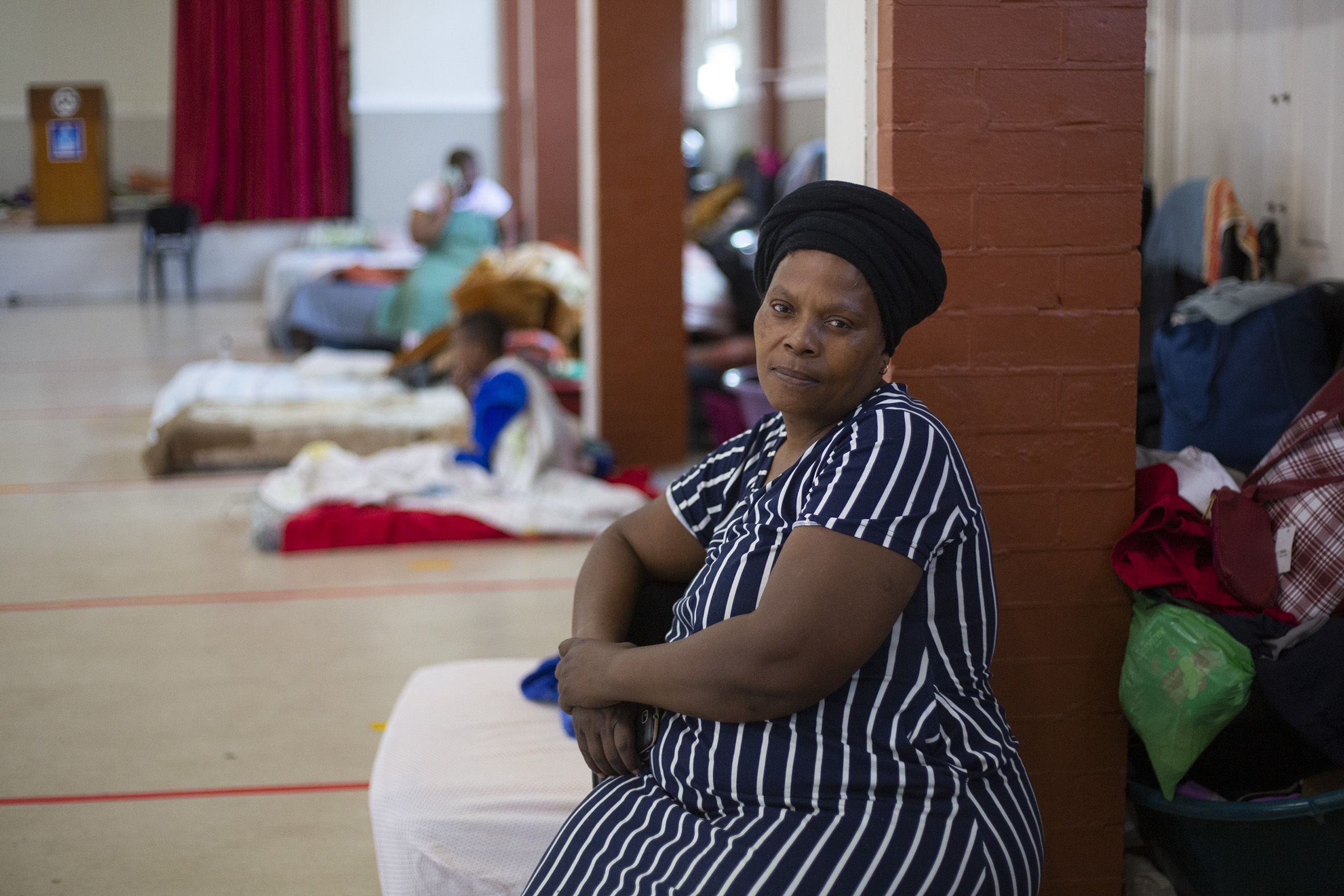

Caught in rival politics
Mqushwana, who is also the secretary of the Siyathuthuka residents committee, spearheads initiatives that provide women with safe spaces and also campaigns for aid and municipal services in the area. She says the lack of adequate “access to electricity, ablution and decent housing” since the settlement was established more than 15 years ago has a lot to do with politics.
The settlement is in a ward governed by the DA, while the ANC runs the metro. “We notice how municipal services are delayed or ignored, as if it is punishment because we are under the DA. Also, we notice that we might not matter, make sense or relate to the leaders and followers of the DA. Maybe that’s why they ignore us and our needs. To a certain extent we do take some accountability as we are not active voters and participants in our politics,” said Mqushwana.
“It is humiliating to live in a place like this. We have cried, protested and begged enough. Right now a lot of people have become hopeless. They are just bodies walking. They don’t even care to vote because what is the point? In the end, our government, led by Black leaders, seems anti-poor and anti-Black.
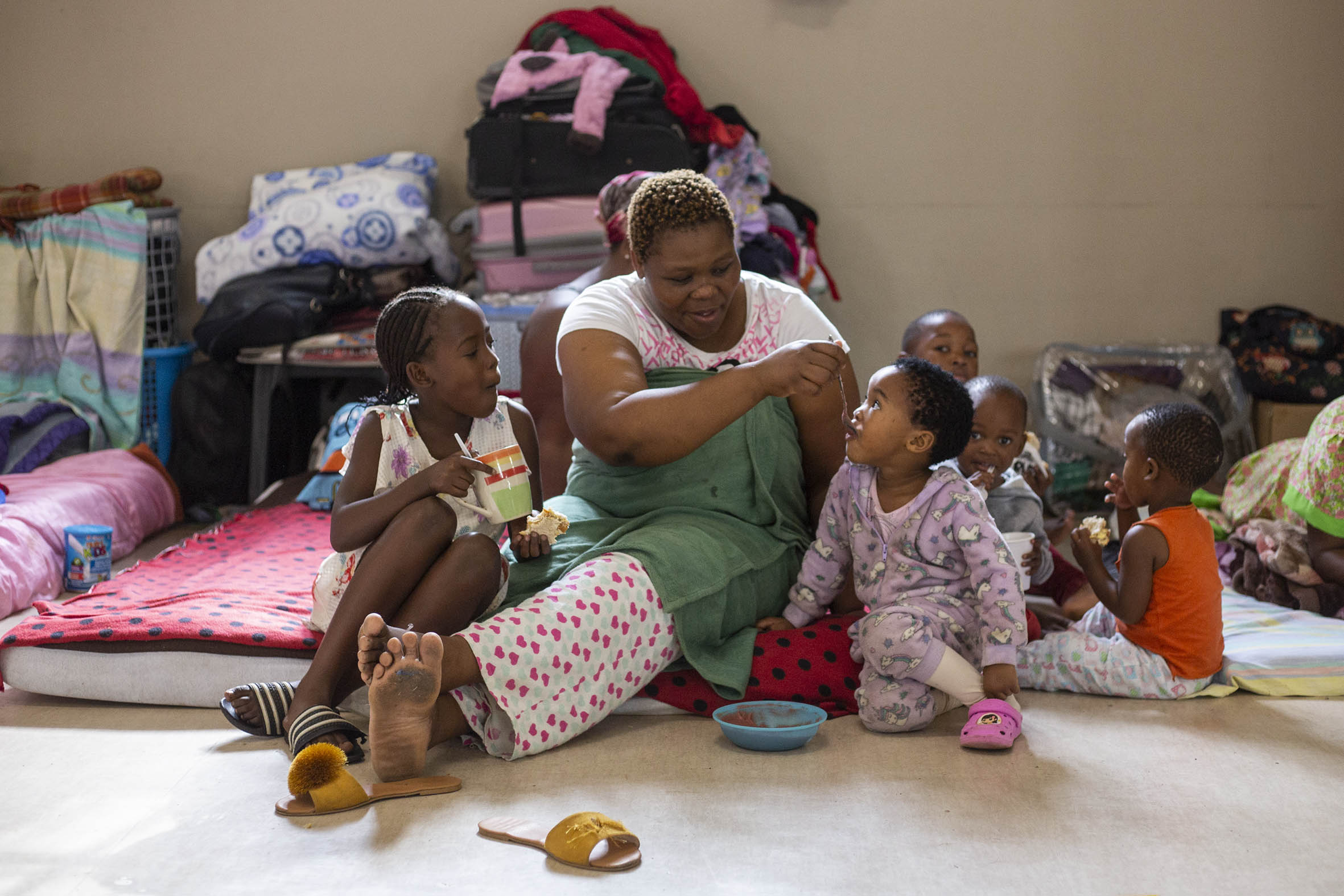

“They must really hate us because we are living in dehumanising environments when there is so much that the government could be doing to rapidly eradicate poverty and housing. We are prone to illnesses here, there are no decent toilets, and contaminated water and sewage run through our roads and passages where the children play.”
Vuyiseka Mkhaleni, 28, lost her home in the April floods. She and her partner had been sharing a one-room shack and were expecting their first child, counting down the days to its delivery. They both moved to the Greenwood Park hall on 22 May and took shelter in a small room at the back.
The room is cold and bare, with only wet garments and a few nappies and clothes for her baby boy Buhle, who has since been born. Mkhaleni uses a blanket to create comfort and warmth and protect him from the damp and humidity that leave the floor and walls wet, creating an “unbearable coldness”.
Mkhaleni, who lost her parents when she was nine, says she first arrived in Durban in 2018 after a family friend had adopted her six-year-old daughter, for whom she could not provide. With prospects of employment in Durban promised by a friend, she decided to leave Umtata in the Eastern Cape. She worked as a childminder but later quit and started looking for her own home in Siyathuthuka in 2021.
Mkhaleni describes her longing for a normal, dignified life. “I just want a job. I still seek jobs the old-fashioned way, knocking on people’s doors and at factories and shops. Sometimes you get lucky. But since Covid happened, it’s been difficult to find informal employment. I now depend on my boyfriend, who does odd jobs and sports betting. I used to be able to make some money from washing people’s clothes but stopped during my eighth month of pregnancy.
“It’s hard to go on when you are unemployed and dependent. As a woman that is the last place you want to be in. You are vulnerable and gradually you become accustomed to poverty and its humiliation.”
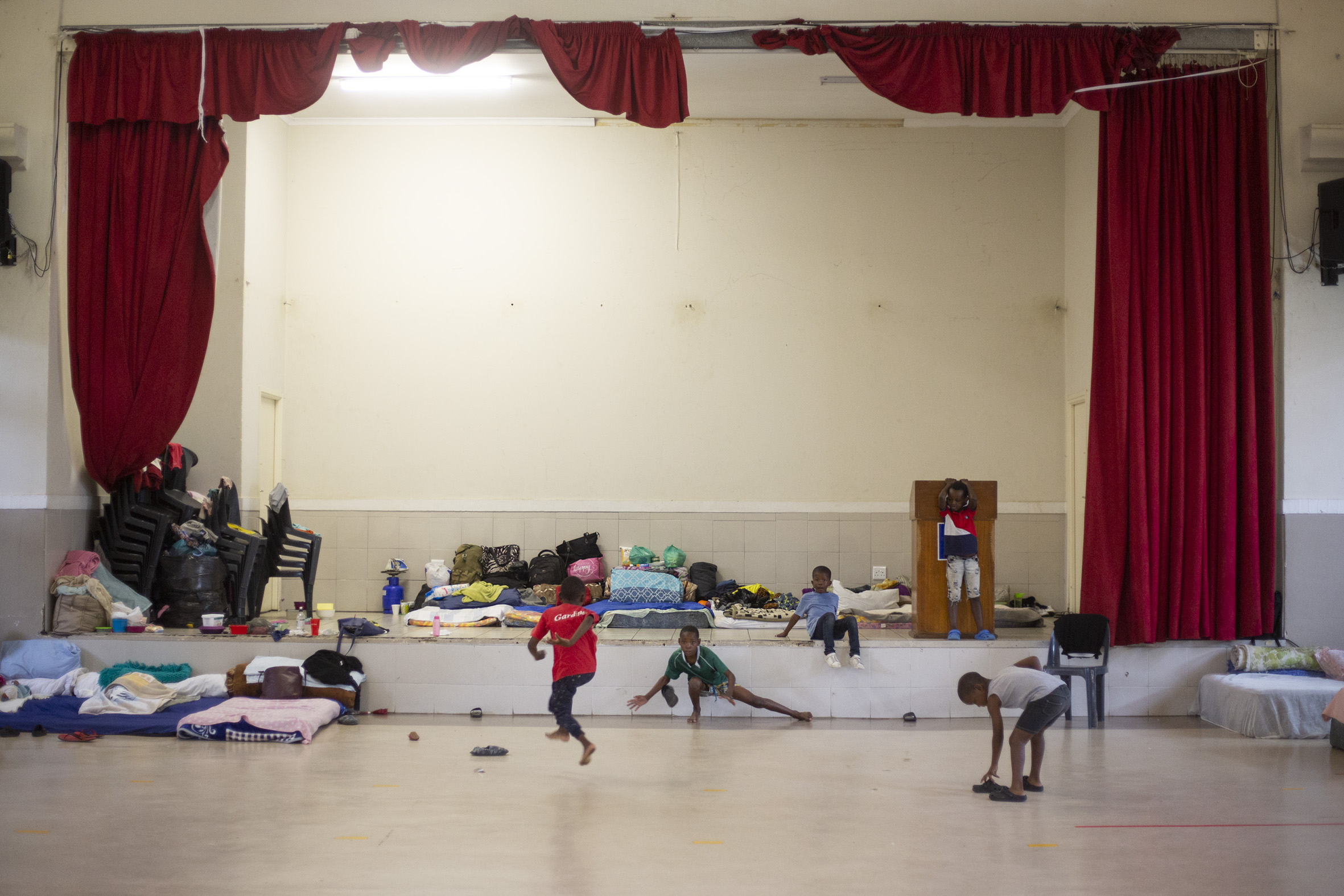

Hands tied
Bobby Maharajh, the councillor for Ward 34 under which Siyathuthuka falls, says he has urged the eThekwini municipality and the KwaZulu-Natal Department of Human Settlements to “prioritise an urgent relocation for Siyathuthuka residents.
“To date, I have not heard anything from human settlements,” said Maharajh. “The deputy mayor [Philani Mavundla] has been a regular in the area. After the fire, the deputy mayor and the minister of Cogta [Cooperative Governance and Traditional Affairs, Nkosazana Dlamini Zuma] came to inspect the settlement’s living conditions.
“Siyathuthuka is not a safe place. I would not want anyone to go back there and start rebuilding [their shacks]. The municipality has to try harder. The settlement is not even numbered, and that’s why there are little to no services. The municipality is not taking responsibility and we need guidance from them or there will be more fatalities.”
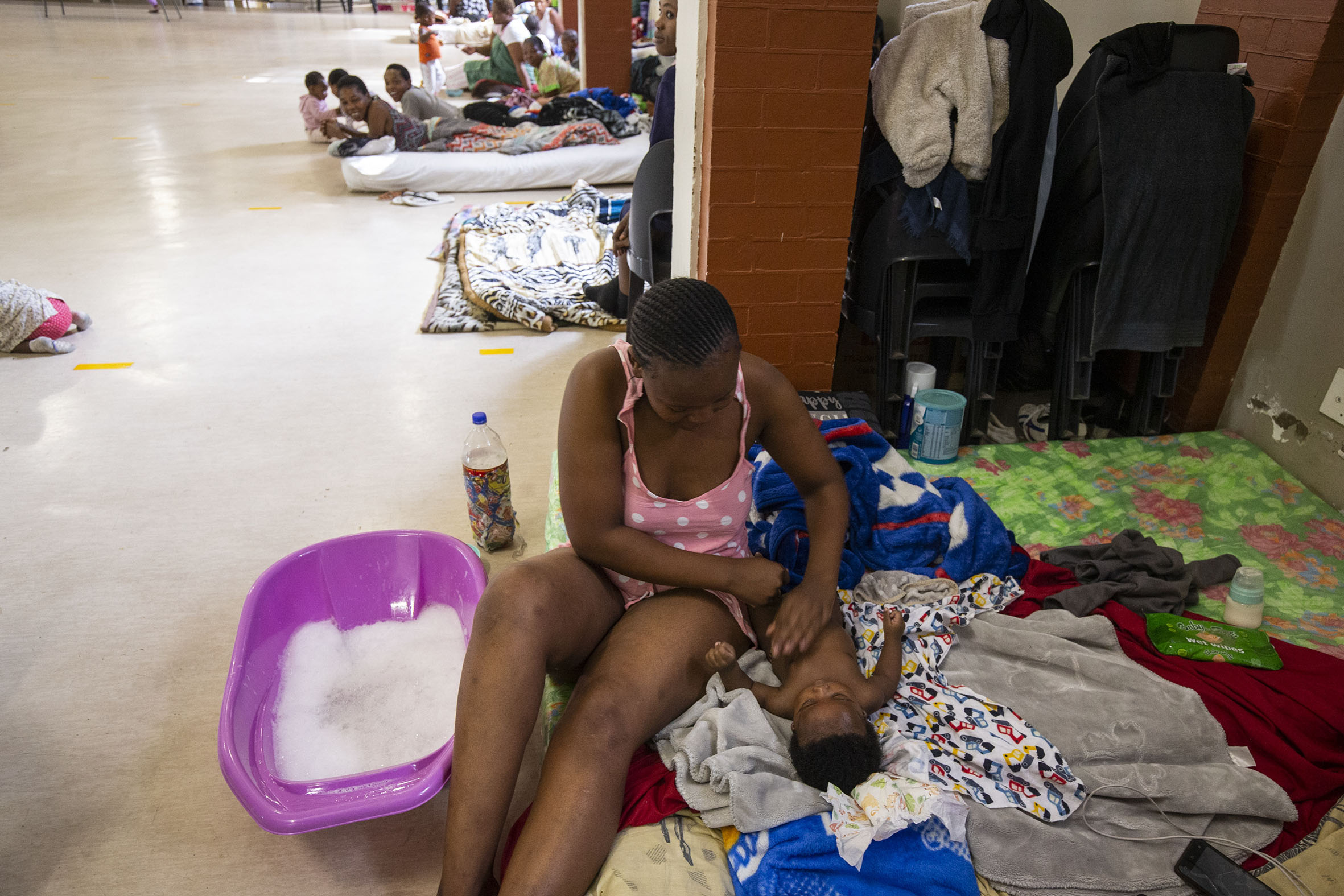

Maharajh says he is currently overwhelmed by the large number of people who need shelter as a result of the disasters in the settlement. He adds that Siyathuthuka residents are caught between apathetic neighbours who rejected the displaced group after the second round of flooding in May and a municipality that is not taking responsibility.
“We tried all night to find a hall and a place of safety because some people were rejecting the group. We were told we can’t use Greenwood Park hall, which is the nearest hall to the community. The community was then made to go up and down between halls and pushed around. It was not an ideal situation. It was still raining and late at night. The community eventually forced entry at Greenwood Park hall, where they are now staying and surviving from donations.”
